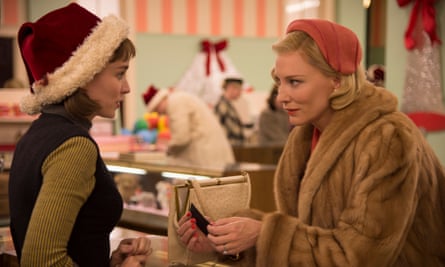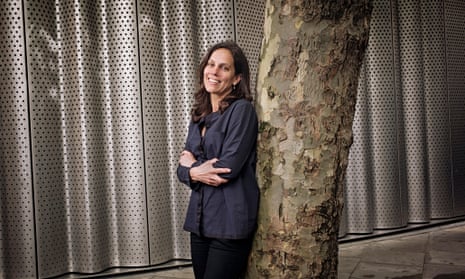Buried in the vast cache of Sony emails leaked last year was a revealing statement by Hollywood screenwriter Aaron Sorkin. “There just aren’t that many tour-de-force roles out there for women,” he wrote. It was not sympathetic – he meant to criticise the female actors picking up awards for “easy” roles when male actors had to work so much harder – but he landed on a valuable point. It has been repeated since by everyone from Elizabeth Banks and Kristen Stewart to Carey Mulligan and Michelle Rodriguez: Hollywood is depriving its actresses of interesting roles.
Yet it is not an issue ignored by everyone in the film industry, and one woman who is attempting to combat Hollywood’s ingrained sexism is the producer Elizabeth Karlsen. The force behind movies such as Made in Dagenham and Little Voice, she has spent her long career bringing a diverse and powerful range of female voices on to the screen. Her latest venture, Carol, based on Patricia Highsmith’s 1952 novel The Price of Salt and starring Cate Blanchett, is no different.
It’s taken more than 50 years to get Highsmith’s seminal – and once shocking – lesbian novel to cinemas. Yet the tale of the older, married Carol (Blanchett) and shopgirl Therese (Rooney Mara), as they fall in love and set off across the US on a road trip pursued by a private detective, has become one of the most anticipated competition debuts at Cannes.

“I always knew Carol would be a really important film,” says Karlsen. “It was so scandalous at the time because it has a happy ending. Even today you can count on one hand the number of gay stories with a happy ending. But it is also just a wonderful love story, with two very powerful women at its heart. And that, sadly, is still very hard to find, even in 2015.”
As one half of Number 9 films, the independent production company she formed in 2004 with her British husband, Stephen Woolley (also an acclaimed producer and director), Karlsen has long championed more unconventional or difficult stories, be it child abuse in Hollow Reed or transgender characters and prostitution in Breakfast on Pluto.
While Highsmith is best known for her psychological thrillers (most notably The Talented Mr Ripley), Karlsen saw another, more intriguing, side of the author reflected in the pages of The Price of Salt. As Highsmith herself noted just prior to her death in 1995: “I never wrote another book like this.”
While Karlsen came across the script for Carol in 2004, she wouldn’t get the rights to make the film for another eight years. “I’ve always loved Patricia Highsmith’s writing, but to me what is so fascinating about [this story] is that it is semi-autobiographical, based on this striking woman in fur she had seen when she was working in a department store,” she says. “When I decided to take on the project, I started reading Highsmith’s diaries and letters, which are held in a library in Zurich. What was really interesting was that she wrote in one of her diary entries about her longing to have children and to have a proper relationship. Patricia Highsmith was also gay, and this felt, to me, like she was writing a life she thought might be possible – that [The Price of Salt] was the novel of what might have been.”
Producing the film, says Karlsen, was a passion project littered with obstacles. Phyllis Nagy, who wrote the screenplay, had already spent 14 years fighting to get it made without success, and even once Karlsen convinced Highsmith’s reluctant estate to sign over the rights to her, they went through two other directors before Todd Haynes finally came on board.
Championing Carol, Karlsen was struck by the prospect of bringing a defiantly female-driven story to a wider audience. “As you get older, you become far more attuned to just how much gender inequality is around. The longer I live, the more depressed I am that so many things haven’t changed for women – and so many things have gone backwards.”
Karlsen, who is the chair of Women in Film and Television, doesn’t mince words about how the film industry has failed to adequately represent women. “Women make up 50% of the world’s population, and yet they are an underused workforce and are underused creative and intellectual powerhouses. And they are an audience who are still not being served.”
Agreeing with recent remarks made by Carey Mulligan that sexism remains rife within the industry, she adds: “Certainly there aren’t nearly enough female film directors, there aren’t enough women screenwriters and producers. The figures were worse this year than last, the number of women actually went down. And that is unacceptable.”
Karlsen sighs. “There is this circle of men hiring men and telling men’s stories, and not having a clue that it is not always very interesting. That’s why Stephen and I are so keen to tell female-driven stories. It’s a silent history that is slowly, slowly being unearthed.”

Comments (…)
Sign in or create your Guardian account to join the discussion